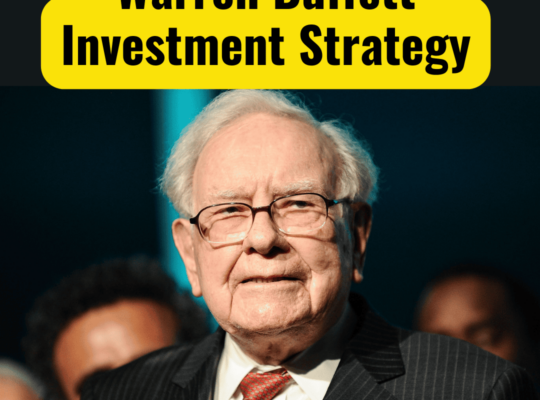
As Warren Buffett describes it, “feel more secure investing when the ordinary person is highly terrified about putting money into stocks, because when the bulk of society is too frightened to buy, that’s typically the ideal moment to invest.” Any successful investor understands this because they recognize what it takes to become a good investor.
Many individuals believe that becoming a good investor involves hidden insights of the stock market or unusual acumen in asset selection. But it turns out that by following a few basic steps, anyone can become a competent investor.
In this article, we will look at the qualities that constitute a great investor.
Table of Contents

Get started by reading some good books
Good investors, on the whole, are ardent readers. Here is a selection of some useful books to read to improve your investment skills:
1. “The Intelligent Investor” by Benjamin Graham
2. “One up on Wall Street” by Peter Lynch
3. “Common Stocks and Uncommon profits” by Philip A Fisher
4. “Security Analysis” by Benjamin Graham and David Dodd
5. “Little book of Common sense investing” by John C Bogle
6. “The Richest Man in Babylon” by George S Clason
7. ‘What I learned about investing from Darwin” by Pulak Prasad
This is not an entire list, and there are a myriad of similar other books that may provide investors with excellent investing information and insight.
Good investors also study a lot of company stories and annual reports.
Questions to ask yourself
Do you take unnecessary risks? How would you describe these risks? Have you ever lost a large sum of capital on an investment? Why do you believe you did that? Each of these are critical questions to explore as we try to hone our investing skills. Answer these questions logically to get to know yourself properly as an investor, and return to them from time to time to track your progression on your financial path.

Quality of Business matters
According to statistics, public entities have in general multiplied at a rate of 9-10% every year during the last 70 years. It was also discovered that these firms had an average ROE (Return on Equity) of 9-10% per year. We may deduce from these two findings that the return on an asset will match the ROE over time. Hence profits will be influenced by the business’s competence and the rate at which it can boost overall value per share. As a result, investors must devote a significant amount of effort in comprehending the foundation of the firm as well as the consistency of their rates of return.
Following the news media and/or broker tips may also be detrimental to your financial wellness. Isolating oneself from the noise of broker tips and media chatter facilitates investment choice.
In a nutshell, we must be investors in the value of a company rather than speculators of the company’s share price. As a result, it is preferable to disregard market noise and concentrate on the business. Regardless of what the general public believes, investors must have a solid knowledge of business basics.
As rightly said by Benjamin Graham – “In the short run, the market is like a voting machine, adding up which enterprises are most liked and most disliked. However, in the long term, the market functions as a weighing machine, judging a company’s content”.
Set a Goal
Creating a defined objective, like as investing for retirement or for your child’s higher education, and having a rupee amount target that you’re striving to accomplish, as well as setting a timeframe for each goal, is essential. If you begin saving for your child’s college fees when they are five years old, you will plan to save for the next thirteen years. When feasible, divide your investing goals into short-, intermediate-, and long-term portions that correspond to the typical life cycles of young, midlife, and post-retirement periods.
The first stage in your investing path is to establish clear monetary and mission-based goals. A smart investor must be able to see the broad picture, even if it is years away. Finding a partner who recognizes and supports your financial ambitions will help you succeed sooner rather than later. A good investor has a solid strategy in place to make their idea a reality.

Stay focused and be patient
Stick to your strategy once you’ve established it and start to execute it. Make continuous and steady investments. The major characteristic that distinguishes a competent investor is their investing time period. A savvy investor anticipates investing in and holding a stock for at least five to seven years. You do not need to monitor your accounts on a daily basis, but you should “rebalance” your portfolio on a regular basis, maybe once in a year. This essentially involves modifying your distributions in response to changes in your goal targets.
For example, as you approach retirement, you may want to allocate more of your portfolio to fixed income securities to lower the fluctuation of your portfolio. What appears to work for you at 25 might not work for you at 55.
Smart investors understand that every ticker symbol represents a company. They do not anticipate to profit from a stock in a week or two. You don’t start a business expecting to make money in a month or less. As a result, becoming a successful investor necessitates patience.
Over the past 40 years, Warren Buffett has shared and taught his investment philosophy through his yearly letters to Berkshire Hathaway shareholders. Despite this, most investors do not bother to learn how to invest since they lack attention and perseverance. No matter how good a company and its executives are, they require time to mature. Most individuals lose interest in their investments over time and eventually sell them to invest in the “next great thing,” which typically does not end well too.
Have a consistent Investment Strategy
To attain consistent investing returns, one must be able to adhere to an investment plan. You will most likely lose money if you are unable to stick to a set approach. For example, if you are a dividend income investor, you cannot keep up with the year-to-year gains of growth investors. They may be up one year, but they may not be the following year.
You must stick to your investing approach since that is what you are familiar with. You will most likely be burnt if you venture outside of your zone. A successful investor stands out from the crowd because they adhere to their strategy even after getting hit in the face.
Keep learning
If you’re pondering how to become a savvy investor, start by expanding your understanding of investing. Read as much as you can about investing topics and seek expert advice if you have any questions. No single investor understands everything. And, as our world evolves, so do the markets. So, it’s critical to continue learning about your investing choices, expenses, and risks.
Warren Buffett, one of the world’s most successful investor, also confess that they are still learning. Buffett is 94 years old, yet has never stopped studying. Buffett still reads many annual reports on a daily basis.
Charlie Munger has said this several times that “Spend each day attempting to be a bit smarter than you were when you woke up. Day by day, and at the end of the day—if you live long enough—you will get what you deserve out of life”.

Good investor preserves his capital from the risk of investing
When you have little money to invest, it’s all joy to invest them. However, as your portfolio grows in size, you will be need to manage risk more prudently. Investing with Rs. 10,000 is much easier than with Rs. 1 Lakh, and it becomes more tougher with Rs. 10 Lakhs.
When your money rises, your focus shifts from maximizing returns to safeguarding your hard-earned wealth. A wise investor will manage risk by holding a diverse range of investments in order to protect capital. They will not just place large bets on speculative stocks or risky assets since they want to preserve their funds.
If you know you don’t want to analyze equities, just invest in broad market index funds such as the Nifty 50 index or the Sensex index. If you know you won’t be able to tolerate market swings, you should invest more prudently in fixed-income instruments or hybrid funds.
As said by Peter Lynch – “In the stock market, if you’re good, you’re right six times out of ten. You’ll never be correct nine times out of ten.”
Don’t try to time or beat the market
We’ve all heard the all-too-familiar investment adage, “Buy low, sell high.” But timing the market is a futile effort. Many “professional” investors have attempted and were unable to do so. The markets are dynamic and hence will change continuously. Your returns will fluctuate from day to day, but investing is about putting time into the market rather than trying to time the market. A smart investor does not strive to outperform the market. The great majority of our holdings should be riding the market’s wave. There is no reason to strive to outperform the market.
If you are attempting to outperform the market, you are attempting to achieve something that is unnecessary. A 12% yearly compounded return is incredible and should be regarded as such.
Experts say “time in the market beats timing the market”.

Don’t make emotional decisions
It might seem like butterflies in your stomach to notice a reduction in your portfolio value. Take a deep breath and keep your cool. Markets vary on a regular basis, and there will be times when you are not assertive in the markets. Remember to stick to your investment strategy.
Have the conscientiousness to remain calm and not become too excited or depressed when stock prices rise or fall. Because these are the times that differentiates a normal investor from a great investor. It takes years of effort to remain calm as stock values fluctuate in both directions.
Wise investors disregard market and economic turmoil and instead focus on crucial fundamentals and ideas. Few people can maintain this degree of discipline. There are several investing fallacies to be aware of while putting money at risk. Investors must remind themselves not to fall in to rumors since the psychological ‘Fear Of Missing Out’ (FOMO) may be quite potent. Money, whether we like it or not, is an emotive affair. When emotions enter the picture, we make illogical decisions, which is a bad formula for your investing journey and hence for your financial future.
Conclusion
Smart investors are not characterised by the large quantities of money they have to invest or the secret stocks they know how to choose. Instead, they devise an investment plan that works for them and try their best to stay to it regardless of what the investment journey throws at them. The key to unlocking the value of long-term investment is to start early, reinvest your returns, and stay diverse. It is critical to put yourself in a position where you can utilise what you have learned and find value in investing.
To summarize, a competent investor understands what they are investing in and why. They have complete control over their entire investment strategy and can continuously make a contribution to their portfolio as it grows.
Check out my other blogpost on how a Beginner Investor should approach investing for Long-term success.
Do Follow me on Linkedin and Quora for more such insightful posts on investments, personal finance, insurance, money management, etc.





